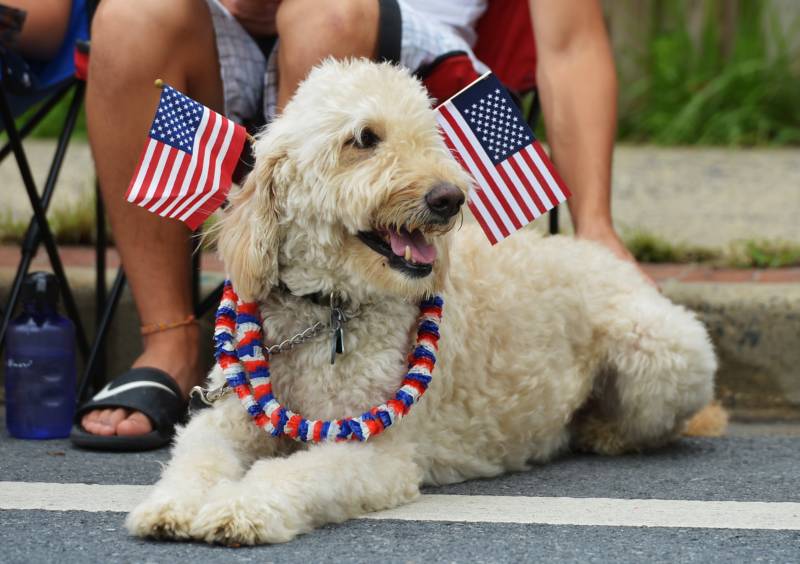2. Update Your Pet’s Tag and Microchip Information
Liu says shelters often receive microchipped animals but are unable to contact their owner because the pet's microchip information is outdated. Your veterinarian can help if you don’t know how to update this information or if you don't remember what microchip company you used.
3. Recognize Fearful Behavior
Pets may perceive loud, unexpected noises as a threat, and running away or hiding is a natural survival instinct.
It’s important to know if your animal is anxious in order prevent them from accidentally injuring themselves. Animals may be showing signs of fear if they are panting, licking their lips, whining, drooling, shaking, yawning, hiding or not accepting a treat.
4. Create a Safe Space
“It is not uncommon to see pets trying to tear through metal crates, chew through door frames, or jump out of windows,” Liu warns.
She suggests owners create a safe haven for their pets before and during firework celebrations.
“Choose a comfortable room without windows, or where you can close the curtains. Play soothing music or use a white noise machine,” Liu says. “The goal of these tools is to help your pet relax and stay calm.”
Liu says some pets may want to hide in the bathroom due to its extra insulation, which could make a great safe space if your pet is naturally attracted to it.
5. Give Them Treats — But Watch What They Eat
Distract your furry friends with what they love most — treats. Even better: try a treat-dispensing toy, like a KONG, to keep them distracted for long periods of time. “A pet that is comfortable enough to be eating is less likely to be panicked or worried," Liu says.
But be aware of what they have access to, she warns.
"We’ve had animals come to our veterinary hospitals with severe injuries due to fireworks, including burns," Liu says. “Pets should never be near fireworks — not only is it scary for animals, but fireworks have the potential to cause serious harm."
Dogs may also try to eat fireworks that aren’t safely stored, which contain chemicals and heavy metals. Also keep your canines from munching on sparklers, glow sticks, charcoal, kabob skewers and even dangerous common foods.
6. Consider Over the Counter Medication
You can try using calming pheromones to relax your pet, such as sprays for cats, and collars or plug-ins for dogs.
If all else fails, and your pet is exhibiting severe anxious behavior, Liu says to talk with your vet about medication options.
